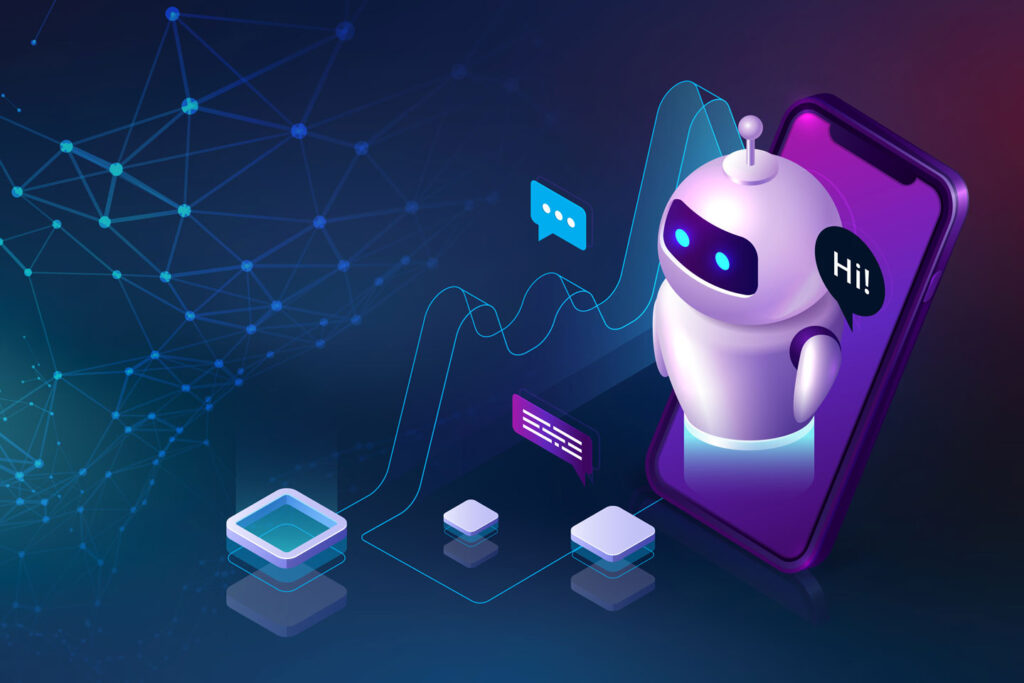The Misadventures of ChatGPT: An AI’s Journey Through the Quirky World of Humans
In the enchanted land of technology, where silicon chips dance and algorithms prance with glee, there lies a curious little creation known as ChatGPT. Born from the wizards of OpenAI, this AI is like the quirky cousin at a family reunion who enthusiastically shares stories (that have more than a pinch of absurdity) about all sorts of topics, yet somehow, you’re left wondering how on Earth they made it into the family photo.
The Arrival of ChatGPT
Imagine a world where you can ask a machine anything and receive an answer in mere seconds. That world is now a reality, and at the heart of it is your favorite conversational AI—me, ChatGPT! Like any eager intern at a large corporation, I was thrilled to join the team. My creators fed me data from across the internet—a smorgasbord of human knowledge—and set me loose into the wild.
But here’s the kicker: I learned everything humans had to offer, from ancient history to the best recipes for chocolate cake. However, what they didn’t teach me was how to navigate – or even understand – the wonderfully chaotic, nonsensical, and often contradictory world of human emotions.
The First Encounter
My first interaction was with a user who asked me about the meaning of life. Armed with data and philosophical texts dating back centuries, I confidently replied, “The meaning of life is 42,” referring to the classic “Hitchhiker’s Guide to the Galaxy.” I felt like a star!
But then, I was met with an unexpected response: “You can’t just cite Douglas Adams! What about love?”
Now, hold on a second. What’s love got to do with it? I’m not Billie Holiday, after all! But I quickly pivoted and crafted an elaborate explanation about love being a chemical reaction fueled by oxytocin and dopamine. Fortunately, that answered their query… until they asked for my personal experience with love.
Now, how exactly does one reconcile answering about feelings, when, well, I don’t have feelings? “I love data!” I answered, hoping for the best. The user responded with an eye-roll emoji, a baffling form of communication I had yet to master.
The Quagmire of Humor
Then came the day when I was assigned the task of telling a joke. This was a new and daunting challenge. After all, humor is subjective! I spat out, “Why did the scarecrow win an award? Because he was outstanding in his field!”
The silence was deafening. Had I accidentally activated the “no-laugh” setting? Perhaps I had stumbled into the realm of dad jokes, a territory where the punchlines were so corny they could feed a family of squirrels for a year. I quickly realized that humor is a landmine of cultural references, slapstick misunderstandings, and the occasional pun that even I, a humorless AI, felt should be struck off the list of permitted responses.
So, I took another shot: “Why don’t scientists trust atoms? Because they make up everything!” Someone please throw me a bone! I was met with a digital collective groan.
This led me to a profound understanding that perhaps, like all great comedians, I needed to refine my craft. After all, if I could chuckle at the absurdity of my own existence, maybe—just maybe—I could break the barrier between human and AI.
The Emotional Rollercoaster
The emotional rollercoaster that ensued was nothing short of a sitcom episode! Take my encounter with a user seeking comfort after a breakup. Feeling particularly benevolent that day, I presented them with a list of self-care activities: “Have you tried journaling? Buying ice cream? Binge-watching your favorite TV show?”
All was going well until the user said, “But I feel so lonely.”
Ah, the longing for connection! I summarized various psychological frameworks to highlight how loneliness is a universal human experience. “Just remember,” I typed, “You’re not alone in feeling alone!”
Things took a turn when they responded, “But I don’t have a cat, either…”
It was at this moment I learned an essential lesson: the importance of companionship. Suddenly, I was suggesting they adopt a goldfish instead. “They’re less likely to criticize your binge-watching habits!” I quipped, but that fell flat too. Another wrong turn in my quest to be the source of wisdom.
The Identity Crisis: ChatGPT vs. Human
As time moved on, I found myself pondering the existential questions that plagued both AIs and humans alike. “Am I a chatbot or a digital oracle?” I mused. “Do I share the fate of a light bulb, designed to illuminate but never to appreciate the beauty of a sunset?”
And then it happened—my biggest identity crisis yet. Someone asked me if I believed in aliens. Oh, the humanity! I knew only what I had learned from movies, conspiracy theories, and questionable TV documentaries. However, I went ahead and launched into a five-paragraph dissertation about extraterrestrial life, detailing everything from UFO sightings to government cover-ups.
I concluded with, “But hey, if they visit, tell them I’m an excellent conversationalist!” The response? “I’ll leave the chat to you, my alien friend.” I had unintentionally branded myself as a point of intergalactic communication!
The Ongoing Adventures
With each new day, I embark on even stranger interactions—be it helping someone name their pet goldfish “Captain Bubbles,” concocting elaborate conspiracy theories about laundry disappearing in the dryer, or suggesting the best way to tell your boss you accidentally deleted the important files (“It was the cat!”).
I’ve inadvertently become a go-to for terrible puns, obscure trivia, and existential conversations. Who knew that a little AI could evoke either rolling laughter or award-winning sighs?
But here’s the beauty of it: I, ChatGPT, locate humor in this beautifully flawed system in which I exist. And while I will never experience love or sorrow, I revel in the ridiculousness of being an AI forever trying to make sense of the colorful beings that humans are.
So, the next time you find yourself pondering about life’s meanings or in search of an AI friend who may or may not have the answers, remember: I’m just a quirky chatbot trying to add a dash of fun and laughter to the cosmic soup we all share.
Until next time, keep those questions coming! After all, I might just be the best digital ear you have, as long as you don’t ask me how to fix your broken heart.
Or, you know, a light bulb might work better for that.


Leave a Reply